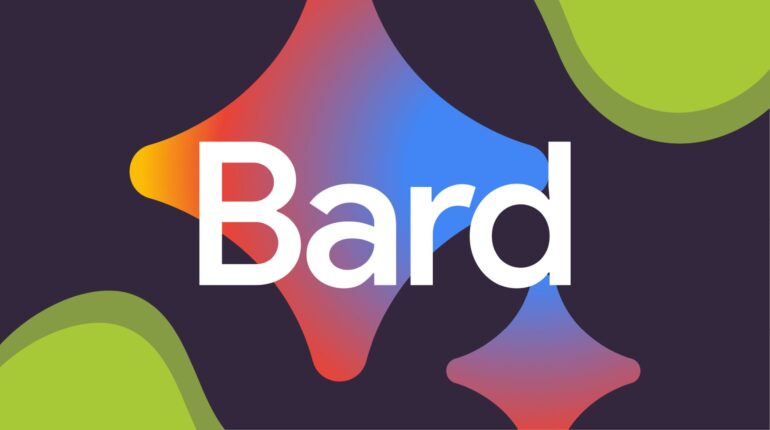TL;DR:
- Google Bard is undergoing a major upgrade with Bard Extensions, enabling users to seamlessly interact with Google and third-party services.
- Bard Extensions integrate with APIs and platforms like Adobe, Kayak, Instacart, and OpenTable.
- Users can enable or disable specific services through a menu next to the Bard icon.
- Bard Extensions allow users to complete tasks without switching between apps or websites.
- Users can use natural language queries to book flights, hotels, restaurants, and real estate.
- Bard leverages natural language understanding and generation for conversational interactions.
- Google is developing a Workspace extension, providing access to Google Docs, Drive, and Gmail.
- Bard Extensions compete with ChatGPT Plugins, offering enhanced functionality and natural language processing.
- Microsoft and OpenAI collaborate on shared plugin ecosystems between ChatGPT and Bing Chat.
- OpenAI blocked the Bing Chat plugin in ChatGPT to prevent the exploitation of news website paywalls.
- Google’s Chrome browser’s extensive plugin availability gives them an advantage in extensions.
Main AI News:
Google Bard is on the brink of a remarkable upgrade that will revolutionize its interaction with a diverse range of Google and third-party services. This groundbreaking feature, aptly named Bard Extensions, was unveiled at Google I/O 2023, and it promises to empower users with the ability to effortlessly accomplish tasks such as booking flights, hotels, restaurants, and real estate through intuitive natural language queries. In a recent turn of events, 9to5Google has obtained a leak showcasing the anticipated user interface that will facilitate the discovery of extensions within Bard.
The ingenious concept behind Bard Extensions lies in its seamless integration of Bard with various APIs and platforms, including industry giants such as Adobe, Kayak, Instacart, and OpenTable. While these are just a few of the initial partners Google has divulged, the company envisions an expanding roster of collaborators joining forces in the future. Users will be granted the liberty to enable or disable specific services through a conveniently placed menu adjacent to the Bard icon. Notably, the menu will also sport a puzzle-piece icon that will signify the availability of Bard Extensions for a given service.
One of the most notable advantages of Bard Extensions is its inherent ability to eliminate the need for users to hop between different applications or websites in pursuit of completing their tasks. Instead, individuals can effortlessly articulate their desires to Bard, and this sophisticated chatbot will take care of the rest. For instance, a user can simply state, “Bard, please book me a flight to New York for next weekend,” or “Bard, find a delightful restaurant near the Eiffel Tower,” and Bard will promptly respond with relevant options and confirmations.
Another exceptional feature of Bard Extensions is its adept utilization of Bard’s natural language understanding and generation capabilities. This means that users can converse with Bard using conversational and informal language, and the chatbot will flawlessly comprehend and respond in kind. Furthermore, users have the freedom to ask follow-up questions or provide feedback to Bard, enabling the chatbot to adapt to their specific preferences and needs effectively.
Furthermore, Google is diligently preparing a remarkable Workspace extension for Bard, which will furnish the chatbot with access to Google Docs, Drive, and Gmail. By harnessing the power of Bard, users can effortlessly create, edit, and share documents, files, and emails. Additionally, individuals can confidently seek Bard’s assistance with formatting, spelling, grammar, and other indispensable features of the Workspace suite.
In light of recent developments, Bard Extensions emerges as Google’s resolute response to ChatGPT Plugins, a similar feature offered by ChatGPT, one of Google’s formidable adversaries in the chatbot domain. ChatGPT Plugins made its debut in March, enabling ChatGPT to seamlessly integrate with an array of services, including Spotify, Netflix, Uber, and Amazon. However, Google asserts that Bard Extensions will supersede ChatGPT Plugins by delivering an unparalleled amalgamation of functionality, flexibility, and advanced natural language processing and generation capabilities.
Moreover, Microsoft and OpenAI are leveraging their formidable partnership to foster a shared plugin ecosystem between ChatGPT and Bing Chat. These plugins adhere to open standards, ensuring seamless integration with both ChatGPT and Microsoft’s remarkable Copilot AI suite. The suite boasts a magnificent lineup of intelligent chatbots, encompassing Bing Chat, Windows Copilot, Dynamics 365 Copilot, and Microsoft 365 Copilot.
However, OpenAI recently implemented a block on the Bing Chat plugin within ChatGPT. The “Browse with Bing” feature was introduced to the ChatGPT Plus subscription last month. Regrettably, a handful of users discovered an avenue to exploit ChatGPT’s capabilities, circumventing the paywalls of news websites. By requesting the AI to summarize articles, they were able to access the content without subscribing to the respective publications.
Given Google’s well-established foundation with millions of web plugins available through its Chrome browser, it is arguable that the company has a considerable advantage in the realm of extensions. Although Google has refrained from announcing a specific release date for Bard Extensions, eager users can anticipate its rollout in the forthcoming months. Those who are intrigued by the possibilities presented by Bard Extensions can secure early access by signing up through Google’s dedicated website.
Conclusion:
The introduction of Google Bard Extensions marks a significant advancement in the chatbot market. By integrating with a wide range of services and leveraging natural language capabilities, Bard Extensions empower users to effortlessly accomplish tasks without the need to switch between apps or websites. This user-friendly approach, combined with Google’s strong foundation in web plugins, positions Google well in the market, providing enhanced customization options and streamlined experiences for users.

